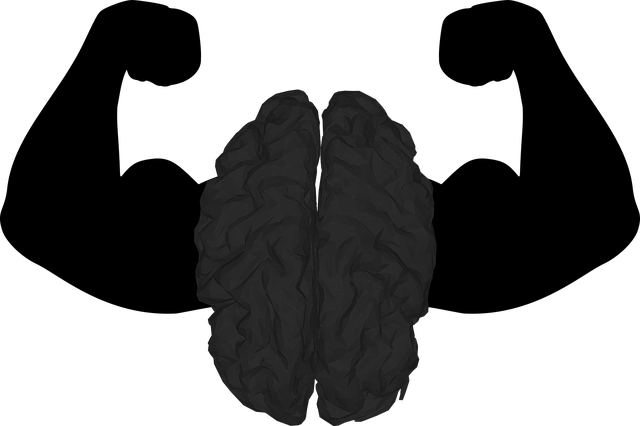Depression, a significant mental health concern, can be prevented and managed through early recognition of signs like persistent sadness and changes in appetite. Wheat Ridge Cancer Issues Therapy offers effective guidance based on mind-over-matter principles and conflict resolution techniques to empower individuals to reframe negative thoughts and manage stressors. Prevention focuses on self-care routines, community outreach programs, and public awareness campaigns that foster social connections and reduce life pressures. Therapy, including evidence-based strategies from trained professionals, builds resilience through emotional regulation, stress reduction, and mindfulness practices. Seeking help from resources like Wheat Ridge Cancer Issues Therapy centers is vital for exploring feelings, developing coping mechanisms, and managing symptoms, especially in high-pressure situations.
Depression is a prevalent yet often overlooked health concern, affecting millions worldwide. This article guides you through essential strategies to prevent and manage this formidable condition. From recognizing subtle signs and symptoms to exploring effective therapy options—including Wheat Ridge cancer issues therapy models—and adopting lifestyle changes, we offer practical steps for fostering resilience. Additionally, we delve into building coping mechanisms and connecting with supportive networks, emphasizing the importance of early intervention and continuous care in maintaining mental well-being.
- Understanding Depression: Recognizing the Signs and Symptoms
- Lifestyle Changes for a Brighter Mindset
- The Role of Therapy and Professional Support
- Building Resilience: Coping Strategies for Daily Life
- Seeking Help: Resources and Support Networks for Depression Prevention
Understanding Depression: Recognizing the Signs and Symptoms

Depression is a complex mental health disorder that can significantly impact an individual’s daily life and overall well-being. Recognizing the signs and symptoms is the first step in preventing and managing this condition. It often presents as persistent feelings of sadness, loss of interest or pleasure in activities once enjoyed, changes in appetite and sleep patterns, fatigue, difficulty concentrating, and thoughts of worthlessness or guilt. These symptoms can vary in intensity and may come and go, making it crucial to be observant of any persistent shifts in mood and behavior.
Wheat Ridge Cancer Issues Therapy offers valuable resources for those facing depression. Crisis Intervention Guidance, centered around Mind Over Matter Principles, empowers individuals to reframe negative thoughts and cultivate resilience. Conflict Resolution Techniques, often incorporated into therapy, teach effective communication strategies to manage stressors and improve relationships, all of which can contribute to a healthier mental state. Early intervention using these techniques can help prevent the progression of depression and foster a more positive outlook on life.
Lifestyle Changes for a Brighter Mindset

Depression prevention starts with making conscious choices to support your mental health. Lifestyle changes can significantly impact your overall well-being and play a crucial role in fostering a brighter mindset. Establishing a consistent self-care routine for better mental health is essential. This involves dedicated time for activities that bring joy, reduce stress, and promote relaxation. Whether it’s regular exercise, mindfulness practices, or connecting with loved ones, these habits can help manage symptoms of depression.
In addition to personal practices, community outreach program implementation and public awareness campaigns development are vital strategies. Engaging with your community can provide social connections and a sense of belonging, both of which are protective factors against depression. By sharing stories, offering support, and raising awareness about mental health issues like Wheat Ridge cancer-related concerns, these initiatives foster an environment where individuals feel understood and encouraged to seek help when needed.
The Role of Therapy and Professional Support

Depression prevention isn’t just about managing symptoms; it’s a holistic process that involves nurturing both the mind and spirit. Therapy plays a pivotal role in this journey, offering individuals a safe space to explore their emotions, thoughts, and experiences. Trained therapists provide evidence-based strategies tailored to each person’s unique situation, focusing on developing coping skills and enhancing mental health awareness. This support is especially crucial for navigating challenging life events or conditions like Wheat Ridge cancer issues, where professional guidance can help individuals build inner strength and resilience.
Through therapy, people gain valuable insights into their triggers and learn effective ways to manage stress and difficult emotions. Building upon these acquired coping skills, they become better equipped to face life’s challenges head-on, fostering improved mental well-being. This proactive approach not only aids in depression prevention but also promotes overall emotional balance, enabling individuals to lead more fulfilling lives despite the presence of external pressures or health issues like Wheat Ridge cancer concerns.
Building Resilience: Coping Strategies for Daily Life

Building resilience is a crucial aspect of depression prevention, equipping individuals with daily coping strategies to navigate life’s challenges. Wheat Ridge Cancer Issues Therapy emphasizes the importance of emotional regulation as a cornerstone in this process. By learning effective stress reduction methods and practicing mindfulness, people can enhance their ability to manage difficult emotions and setbacks. This includes engaging in activities that promote self-care, such as exercise, meditation, or spending time in nature, which have been proven to reduce symptoms of depression.
Community outreach program implementation plays a vital role in fostering support networks and providing resources for emotional well-being. These programs can offer educational workshops on stress management techniques, encourage social connections, and facilitate open dialogues about mental health. Through these initiatives, individuals gain valuable tools to cope with life’s pressures and build resilience, ultimately reducing the risk of depression.
Seeking Help: Resources and Support Networks for Depression Prevention

When facing depression, one of the most crucial steps towards prevention and recovery is seeking help. There are numerous resources available to support individuals navigating depression, especially in communities like Wheat Ridge where cancer issues therapy centers often offer comprehensive mental health services. These facilities provide a safe space for individuals to explore their feelings, develop coping mechanisms, and learn effective strategies for managing symptoms.
Professional guidance from therapists and counselors is invaluable, but it’s also beneficial to leverage support networks. This can include reaching out to friends and family who can offer empathy and understanding, or joining support groups where individuals with shared experiences provide comfort and valuable insights. Additionally, healthcare providers may recommend burnout prevention strategies for those at risk, such as compassion cultivation practices and self-awareness exercises, which have been shown to reduce stress and promote well-being, especially in high-pressure professions like healthcare.
Depression prevention is a multifaceted approach that combines understanding, lifestyle adjustments, professional support, and building resilience. By recognizing signs early, making positive lifestyle changes, engaging in effective therapy like those offered at Wheat Ridge Cancer Issues, and adopting coping strategies, individuals can significantly enhance their mental well-being. Remember, seeking help is a sign of strength, and there are numerous resources available to support your journey towards a brighter and more resilient mindset.









